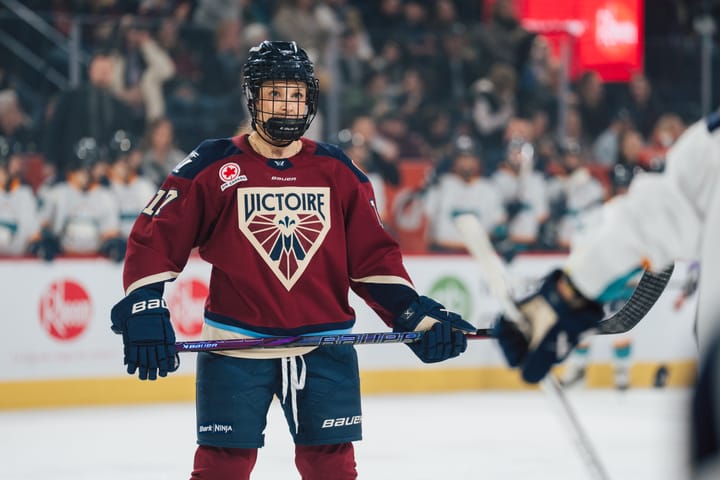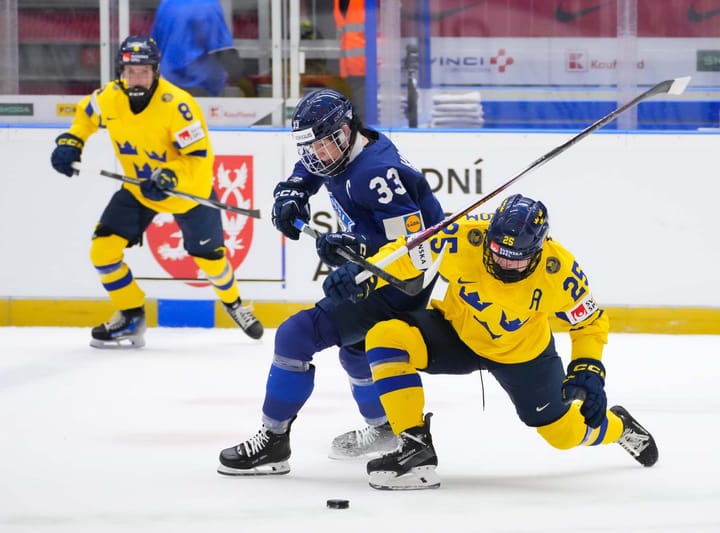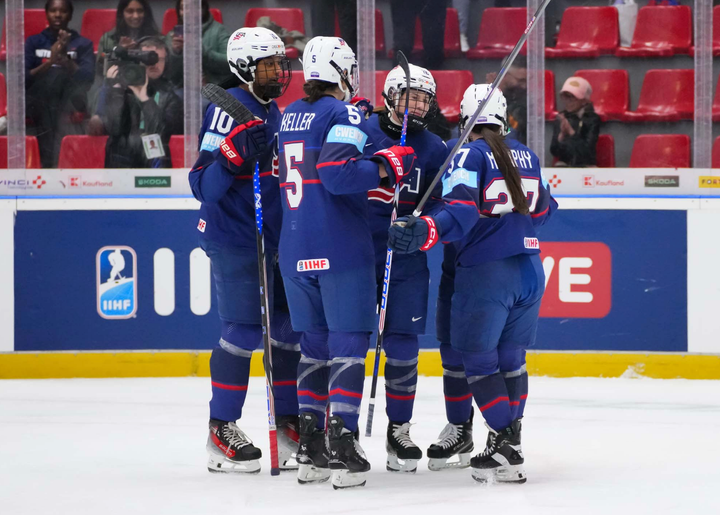Canada Seeks Redemption in Four Nations Cup
The Canadian Women’s National Team hasn’t won a gold medal since 2014. This year, they want to change that.
It’s no secret that Canada dominates the women’s hockey world during Olympic years. Winning four of five Olympic gold medals, the Canadian women seem to be unstoppable on the international stage. Pay attention in the years between the Olympics, however, and you’ll see a different Canadian team. A team struggling at times to keep up with the United States. A team that hasn’t won an international gold medal since the 2014 Four Nations Cup. A team that has lost six of the last seven IIHF Women’s World Championships.
This is the trend that Canada is hoping to reverse, starting with the 2016 Four Nations Cup. Not wanting to go into PyeongChang as the underdogs, Canada is sending a much more mature roster in hopes of regaining their dominance.
Experience Is Queen
In years past, the Four Nations Cup was used as an unofficial test for new players in the Hockey Canada system. A solid core of veterans would welcome a handful of rookies and see how they fare playing in the top division. This gave the newcomers a chance to acclimate to the team with minimal pressure, and gave the program a chance to evaluate their play.
This strategy is not one Canada appears to be continuing. Of the 24-player roster, just one, Laura Stacey of the Brampton Thunder, is making her National Team debut. The rest of the roster is composed of players who competed in the 2016 WWC, a previous Four Nations Cup, or the 2014 Olympics. No NCAA players were invited, leaving out young standouts like Sarah Nurse and Halli Krzyzaniak.
Among the more seasoned players are two names that haven’t been heard in international circles for years. Both Haley Irwin and Jenelle Kohanchuk make their return to Hockey Canada after long-term injuries. The last major international action either of them saw was the 2014 Four Nations Cup, so it will be interesting to see how the forwards fit back in to the program during such a pivotal year.
Goaltending Greatness
Emerance Maschmeyer is the future of Canadian goaltending. There is no debate. In the 2016 WWC Maschmeyer was phenomenal, posting a 0.956 save percentage and 1.25 GAA. She had a shutout of Team USA through regulation in the gold-medal game before the Americans were able to slip one by her in overtime to secure a victory.
Should Maschmeyer falter, who is waiting to take control between the pipes? None other than the reigning CWHL Save Queen, Geneviève Lacasse. For a brief moment, it seemed as if the third goalie would be Shannon Szabados. After being questionably let go by her SPHL team, her agent released a statement announcing her intention to play in the Four Nations Cup. However, Hockey Canada later released a statement saying that their original roster, which included Erica Howe as the third goalie, was the final roster and that Szabados would not be taking any roster spot.
From @HC_Women, contrary to what the CBC article said, Shannon Szabados will NOT be joining the Four Nations roster. pic.twitter.com/e95pOzbwuv
— Hannah Bevis (@Hannah_Bevis1) October 27, 2016
Regardless of the Szabados saga, Maschmeyer will be a solid netminder for Canada. She’s proven that she can stand tall against Team USA’s offense. Now she is looking to prove that she can do that consistently, in the hopes of earning an Olympic spot.
All That Glitters Is Not Gold
Canada has built their roster with all the talent they can muster. While this is quite a stacked squad, it in no way will guarantee Canada an easy road to victory. They enter the tournament ranked second in the world, behind the United States. Talent alone will not flip that ranking.
For starters, the Canadian team needs to remain disciplined. Canadians found themselves in the penalty box 27 times during the WWC, compared to just 14 times for the Americans. While the gold-medal-winning goal for Team USA was not officially on the power play, it came just after their power play expired in OT. The experienced Canadian roster will need to minimize their mistakes, and make sure they capitalize on the mistakes of the United States, because those will be few and far between. Above all, Canada needs to stay out of the box.
Canada has never missed a gold-medal game in the history of the Four Nations Cup. They would be wise, though, to not underestimate the threat of Finland. Finland gave Canada a run for their money in the WWC semifinals, a game that eventually ended 5-3. This time around, Finland will have the home ice advantage. The return of Noora Räty will also make Finland a much more dangerous opponent, and her goaltending may take some time to solve. One positive for Canada is that they started their overseas stint with an exhibition game against Finland, which they won 4-1. Canada should not rest on their laurels though. Finland will no doubt make adjustments and be back in full force during official tournament play.
The Four Nations Cup is a whirlwind of a tournament. The teams each play each other once, then the top two play for the gold. Canada can potentially steal the gold from the United States if they can pay close attention in the first game and use that experience to develop a solid strategy for the medal game. That being said, the United States is largely the favorite and will not easily relinquish that status. For Team Canada, a couple of clutch goals from Marie-Philip Poulin definitely wouldn’t hurt.
Canada began the Four Nations Cup with an exhibition game against Finland on Oct. 30 and opens official tournament play on Nov. 1, also against Finland. The full schedule can be found here.





Comments ()